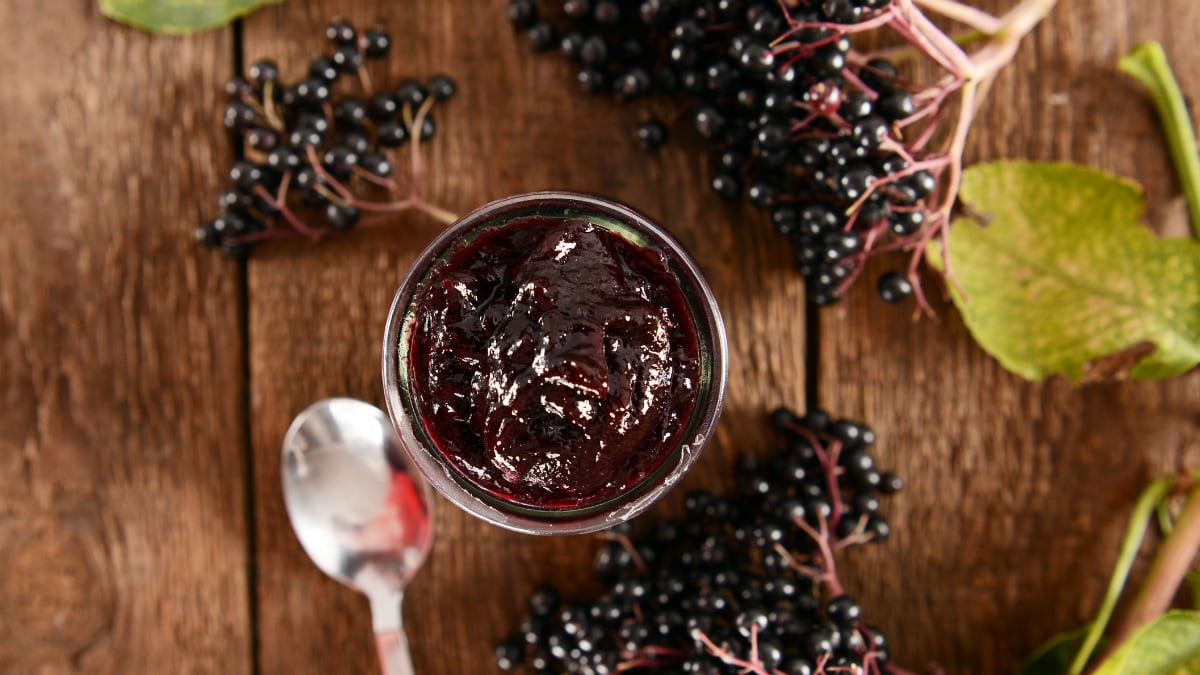To assess the effectiveness of elderberry extract in the treatment of the flu, a team at the University of Sydney conducted a study on mice to determine the mechanism of action by which elderberry and its primary active compound, cyanidin 3-glucoside (cyn 3-glu), worked against the influenza virus.
Using methods such as plaque reduction assay, flow cytometry analysis and haemagglutination inhibition assay, the researchers studied the direct effect elderberry extract and cyn 3-glu on the flu. They also evaluated the modulation of pro-inflammatory cytokines in order to determine the extract’s indirect immunomodulatory effect.
Berry good
They found that elderberry showed a "mild inhibitory effect" against influenza in the early stages of the virus cycle, with a markedly stronger effect during the later stages.
This was attributed to elderberry's direct effects, which involved the blocking of viral glycoproteins, as well as its indirect effects, which entailed increased expression of IL-6, IL-8 and TNF.
On the other hand, while cyn 3-glu demonstrated a similar direct mechanism of action as elderberry juice, it did not affect the expression of pro-inflammatory cytokines.
This finding was consistent with a previous study that reported that goji berry extract had modulated the immune response in adult mice by boosting the secretion of interleukin 2 (IL-2) and tumour necrosis factor alpha (TNF-α).
However, in the current study, the researchers also noted that immune-modulating activity could not be attributed to cyn 3-glu, despite it being the primary active compound in elderberry,
They wrote: "These results are in accordance with previous research that showed weaker stimulation of immune response in mice treated with the low-molecular weight fraction of elderberry concentrate, which includes anthocyanins.
"Nevertheless, high-molecular-weight compounds— including acidic polysaccharides — derived from elderberry might be responsible for the stimulation of the immune function.
"For instance, pectins have gained interest as health-promoting polysaccharides. These substances are a group of acidic heteropolysaccharides and one of the major components of the cell wall of many plants, including elderberry."
Sub-types and summary
They added that elderberry might suppress the post-infection phase by blocking neuraminidase (NA), a glycoprotein and subtype of influenza A viruses, which are divided into subtypes based on NA and another glycoprotein, haemagglutinin (HA).
In conclusion, the researchers wrote: "Elderberry showed potent antiviral activity with a therapeutic index of 12 ± 1.3 against influenza infection. Moreover, inhibition by elderberry was stronger against the late stage influenza cycle than the early stage.
"These findings are consistent with clinical data indicating that elderberry can mitigate the duration and severity of influenza symptoms in patients. The action of elderberry is both direct (suppressing viral entry, affecting the post-infection phase, and viral transmission from cell to cell) and indirect (by modulating the release of cytokines such as IL-6, IL-8, and TNF).
"These data support the use of Sambucus nigra berries as nutraceutical ingredients for the management of influenza infection."
Source: Journal of Functional Foods
https://doi.org/10.1016/j.jff.2019.01.031
"Anti-influenza activity of elderberry (Sambucus nigra)"
Authors: Golnoosh Torabian, et al.



